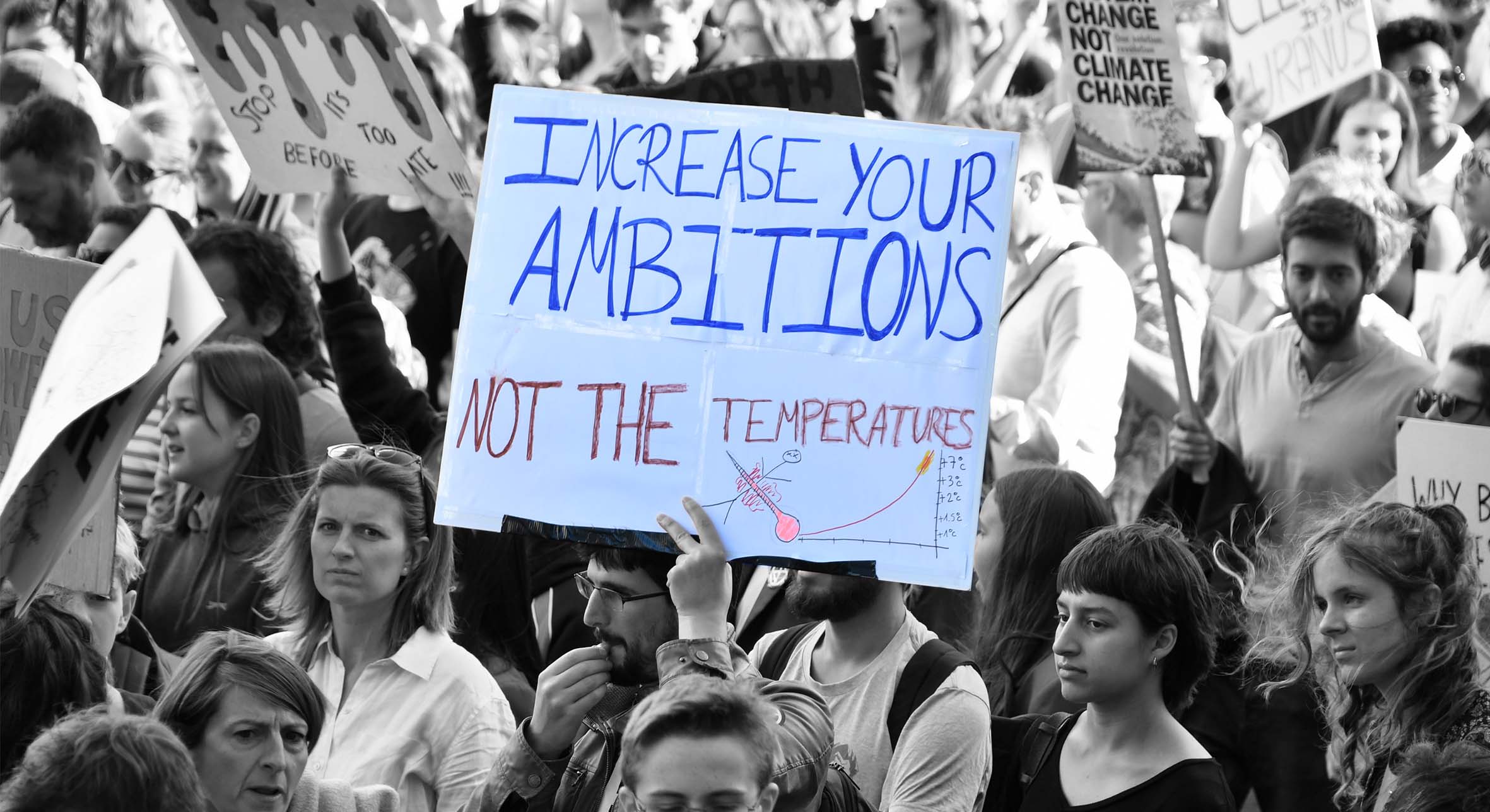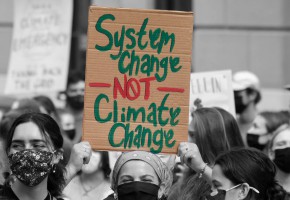

COP27: A lost and damaged cause – Fayza Yassine
Conference of the parties or what is commonly known as COP is the supreme decision-making forum of the United Nations Framework Convention on Climate Change (UNFCCC). Once a year, the COP brings signatory governments to discuss and agree on ways to move forward in addressing climate change and its impacts. Conventionally, state and non-state actors, including civil society, work jointly to address the most pressing issues at hand and ensure bringing transparency and a broader and inclusive perspective to the process.
COP27, held in the Egyptian coastal city of Sharm el-Sheikh from the 6th to the 18th of November, was highly perceived as an “Implementation” COP. Indeed, great hopes were put on this year’s COP due to its occurring in one of the countries that are greatly affected by climate change and located in a highly vulnerable continent. It hoped to highlight the vulnerability of the global south to climate change and emphasize the ways this vulnerability mirrors deeper patterns of inequality and marginalization that usually affect the ones who have contributed least to climate change.
Alas, due to the current difficult geopolitical context; From the Russia – Ukraine war to the rising tensions between China and the US collaboration, in addition to the global economic recession, and the rise in food prices and energy. It seems that climate action was rendered to the back seat of national agendas. Thus, COP27 ended on a sour note with all attempts to eliminate fossil fuels blocked by oil-producing states. The failure to agree on a plan to phase out fossil fuels, and eliminate new funding to fossil-fuel projects in lower-income countries is causing the window for keeping the rise in global average temperature to well below 1.5 to close fast.
Climate action requires engagement with, and contributions from all stakeholders. Needless to say, civil society is an indispensable partner in the global effort to combat climate change. Egypt implemented various restrictions that eventually curbed civil society participation, which limited the room for debate and the active involvement of non-state actors.
As a symbolic coup de résistance vis a vis to these unprecedented restrictions, ANND and its partners Third World Network (TWN), Espace Associative, Coalition Marocaine pour la Justice Climatique, and Forum Tunisien pour les droits Socio Économique, organized a series of parallel events to ensure a people-led approach, especially for those unable to participate in COP27 in Sharm El-Sheikh.
5 Webinars, 15 experts, and more than 200 attendees. Those are the outcome of the series of webinars that were organized in parallel with the COP plenary sessions. ANND side event started with a webinar before the beginning of the COP to inform the public on what has been achieved thus far and what is expected from Sharm Sheik’s COP. The rest of the webinars tackled the most pressing issues that were raised during COP27; namely Finance, Resilience and Adaptation, Gender youth & Future Generations, and at last a webinar that served as an analysis of the major outcomes of this year’s COP.
These webinars, with the help of the experts’ inputs, were able to facilitate knowledge sharing and ignite discussions to understand what these decisions implied to the region. Almost every topic and recommendation raised during these discussions roll toward the big elephant in the room: Finance. The major focus in the region should be on shifting the conversation to focus on climate and development. To ensure justice and equity in green financing, a transition has to include not only the needs of the developed countries, which usually focuses more on mitigation funds and treats adaptation and resilience, topics that are more relevant to the developing countries, as “charity funds” that are not compulsory and heavily lacks a serious pipeline of implementation.
In addition, the matter of loss and damages ought to be highlighted. Despite the many frustrations experienced during COP27 that led researchers and activists to describe the event as transforming into no more than a “great spectacle”, credits should be given when credits are due. Sharm Seikh succeeded in deblocking a “loss and damage” fund to help middle and low-income countries to combat climate change effects. Developing countries that are particularly vulnerable to the adverse effect of climate change have been pushing for the creation of additional resources for 30 years and have finally had their voice heard.
Yet the how and the when of the matter is still unclear. Hence leaving more room for the responsibility and blame game that eventually sinks pledges into oblivion such as the unfulfilled commitments of 100 USD billion per year by 2020 or unmet pledges to the Green Climate Fund and Adaptation fund.
Recent publications

ANND Newsletter January 2026 - From Davos to the UPR: Between Promises, and Accountability
Related publications

An Alternative progressive cycle and a revitalized multilateral system - Roberto Bissio

